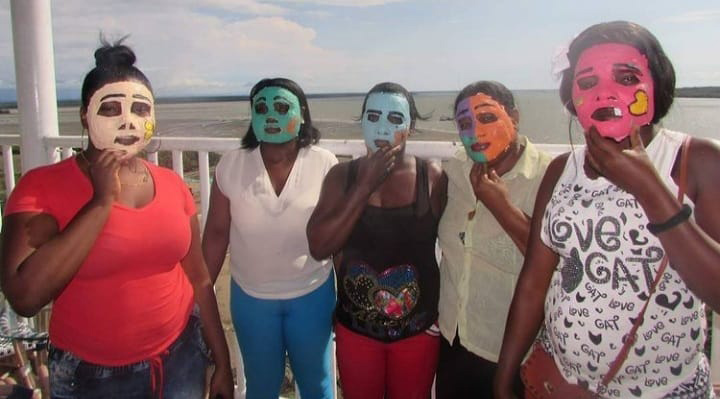Feminisms and queer theories have emphasized the importance of problematizing the place of enunciation in knowledge production. In peacebuilding processes, it is asked: Where is peace made? Which institutions configure their knowledge production? Which agents participate in the configuration? In this sense, we are interested in proposing reflections from feminist perspectives concerning research ethics on these processes in the Global South.
In countries such as Colombia, this field of studies is not exempt from the reproduction of power and knowledge relations. In this article, we question the logic of epistemic extractivism. Research practices that qualify as such subtract information from war victims without advocating for immediate improvements or better living conditions and reduce victims to “informants,” whose stories and experiences are collected only as input for theoretical experiments.
Reflexivity is not only limited to the researcher’s identity, the recognition of privileges, or an intimate confession of his or her vital marks. In our research, for example, we reflect on the following questions: How do we reflect on the research design? What commitments and exchanges do we want to foster with the communities we work in research? How do we plan the fieldwork, methods selection, and research writing? Based on these reflections, we evoke an epistemic and ethical turn in social research that assumes a serious commitment to the communities.
The Indian anthropologist Richa Nagar (2019) calls this type of reflexivity “situated solidarity.” It consists not only of the researcher reflecting theoretically on the place of enunciation but also in daring to think about the geopolitical inequalities while researching. Richa Nagar invites us to ask how research with communities in the Global South produces new theories and contributes to strengthening peace processes.
Feminist ethics in research implies a commitment to war-affected communities, a coexistence with them, but, above all, building knowledge that does not reproduce colonialism, sexism, and racism. Peace research demands responsibility and care for the victims. It implies establishing knowledge practices that do not seek to annul the voices of the communities, nor to see them as subjects without agency, but rather to build with them and not over them.
Feminists advocate for peace research where those who wish to investigate are challenged to break with the tradition of the “modest witness,” as a distant observer who does not get involved and extracts information for their multiple academic subjects. In this tradition, we defend engaged, collaborative, careful, and horizontal research agendas in peace research.


